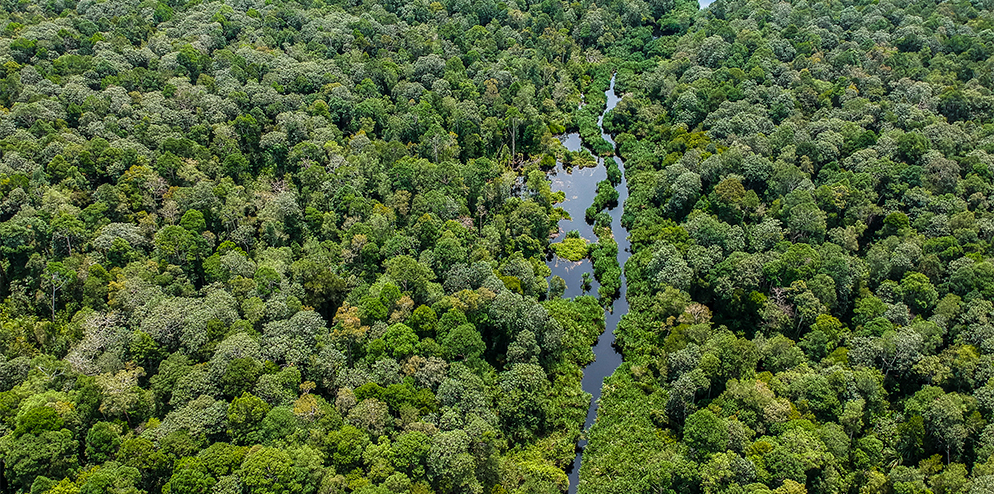The Kampar Peninsula in Sumatra is one of the largest areas of its kind in Southeast Asia, with a rich biodiversity and high carbon stocks.
Indonesia’s peatland areas are some of the most sensitive and endangered ecosystems in the world. The Kampar Peninsula in Sumatra is one of the largest areas of its kind in Southeast Asia and also one of its most threatened. Its tropical forests are rich in biodiversity and support endangered wildlife species, including the Sumatran tiger, flat-headed cat and sun bear among many others.
Its importance is underlined by the fact that it has been recognised by BirdLife International, The International Union for Conservation of Nature (IUCN), the Wildlife Conservation Society (WCS) and World Wildlife Fund (WWF) as an Important Bird Area (2004), Key Biodiversity Area (2006), and Tiger Conservation Area (2007), respectively.

Years of selective logging prior to the commencement of its restoration have degraded the Kampar forest area. Its fragile ecosystem is also threatened by the draining of peat swamp by commercial agriculture and fires started by newcomers to clear areas of land. Despite these activities, the Kampar Peninsula still retains exceptionally high carbon stocks.
It is imperative that the Kampar Peninsula is well managed to restore and conserve this important peatland ecosystem. We believe this can be achieved through an integrated approach to landscape-level conservation and sustainable forestry, contributing towards climate change mitigation in Indonesia and globally.